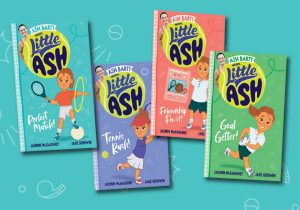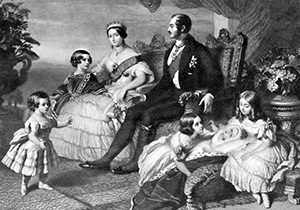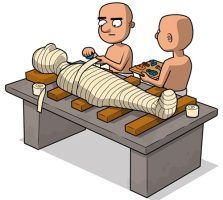
English writing framework: Rainforest Quest!
Practise nouns, verbs, adverbs and adjectives on a rainforest adventure!
This primary resource gives children an opportunity to practise using different word classes, tenses and plural in their writing .
Pupils will be challenged to consider how they use words in sentences and evaluate their knowledge of word classes and tense in our National Geographic Kids’ English primary resource sheet.
The teaching resource can be used as a printed handout, for pupils to use in pairs (one copy per pair), or as a class exercise, with the final result displayed on the interactive whiteboard for class discussion.
Activity: Ask children to work in pairs: one child should suggest words to fill in the blank spaces – without seeing the story framework – and the other child should take the role of asking their partner to give them words, filling them in, and then reading the final story aloud. Answers could be shared as a class. Did the child who didn’t see the framework create a story that matched the expectation of the child who did?
N.B. The following information for mapping the resource documents to the school curriculum is specifically tailored to the English National Curriculum and Scottish Curriculum for Excellence. We are currently working to bring specifically tailored curriculum resource links for our other territories; including South Africa, Australia and New Zealand. If you have any queries about our upcoming curriculum resource links, please email: schools@ngkids.co.uk
This English primary resource assists with teaching the following Key Stage 1 English (Year 1) objectives from the National Curriculum:
Pupils should be taught to: develop pleasure in reading, motivation to read, vocabulary and understanding by:
- listening to and discussing a wide range of poems, stories and non-fiction at a level beyond that at which they can read independently
- being encouraged to link what they read or hear read to their own experiences
- recognising and joining in with predictable phrases
- discussing word meanings, linking new meanings to those already known
Pupils should be taught to: add prefixes and suffixes:
- using the spelling rule for adding –s or –es as the plural marker for nouns and the third person singular marker for verbs
- using –ing, –ed, –er and –est where no change is needed in the spelling of root words [for example, helping, helped, helper, eating, quicker, quickest]
Pupils should be taught to:
- discuss what they have written with the teacher or other pupils
- read aloud their writing clearly enough to be heard by their peers and the teacher.
National Curriculum Key Stage 1 English (Year 2) objective:
Pupils should be taught to: understand both the books that they can already read accurately and fluently and those that they listen to by:
- drawing on what they already know or on background information and vocabulary provided by the teacher
- predicting what might happen on the basis of what has been read so far
Pupils should be taught to:
- add suffixes to spell longer words, including –ment, –ness, –ful, –less, –ly
- read aloud what they have written with appropriate intonation to make the meaning clear
National Curriculum Lower Key Stage 2 English (Year 3 & 4) objective:
Pupils should be taught to:
- develop positive attitudes to reading and understanding of what they read by: discussing words and phrases that capture the reader’s interest and imagination
- read aloud their own writing, to a group or the whole class, using appropriate intonation and controlling the tone and volume so that the meaning is clear
- choosing nouns or pronouns appropriately for clarity and cohesion and to avoid repetition
National Curriculum Upper Key Stage 2 English (Year 5 & 6) objective:
Pupils should be taught to: draft and write by:
- selecting appropriate grammar and vocabulary, understanding how such choices can change and enhance meaning
Pupils should be taught to: evaluate and edit by:
- assessing the effectiveness of their own and others’ writing
- proposing changes to vocabulary, grammar and punctuation to enhance effects and clarify meaning
- ensuring the consistent and correct use of tense throughout a piece of writing
- ensuring correct subject and verb agreement when using singular and plural, distinguishing between the language of speech and writing and choosing the appropriate register
This English primary resource assists with teaching the following Literacy and English Early level objectives from the Scottish Curriculum for Excellence:
- As I play and learn, I enjoy exploring interesting materials for writing and different ways of recording my experiences and feelings, ideas and information
Scottish Curriculum for Excellence First level Literacy and English objectives:
- By considering the type of text I am creating, I can select ideas and relevant information, organise these in a logical sequence and use words which will be interesting and/or useful for others.
Scottish Curriculum for Excellence Second level Literacy and English objectives:
- By considering the type of text I am creating, I can select ideas and relevant information, organise these in an appropriate way for my purpose and use suitable vocabulary for my audience.
Scottish Curriculum for Excellence Third level & Fourth level Literacy and English objectives:
- By considering the type of text I am creating, I can independently select ideas and relevant information for different purposes, and organise essential information or ideas and any supporting detail in a logical order. I can use suitable vocabulary to communicate effectively with my audience.
Download primary resource
More Like
The Jungle Book

LITTLE ASH

Queen Victoria’s children









LEAVE A COMMENT
THANK YOU
Your comment will be checked and approved shortly.
WELL DONE,
YOUR COMMENT
HAS BEEN ADDED!
COMMENTS
Let’s take action!
CUSTOMIZE YOUR AVATAR